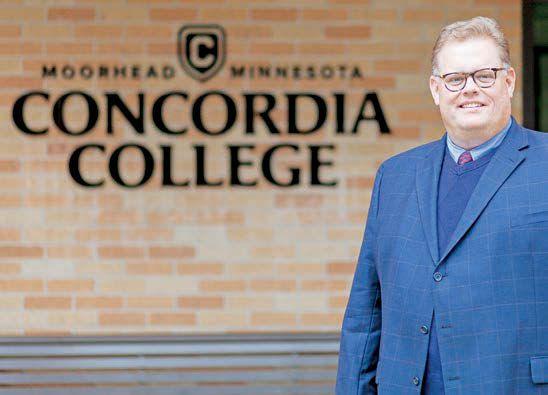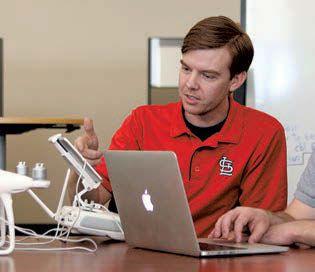
2 minute read
LIKE
Our focus is you. We understand yourbusiness because we take thetime to listenandassess youruniquepersonalandbusiness needs.Whetherit ’s tax andaudit, wealthplanning, cybersecurityoranyofourotherservices,our professionals canhelpyouachieveyourboldestgoals.
What inspires you, inspires us. ei debaill y. co m history, and philosophy, theology, all of those things, has always been important. But how that provides the foundation for ethical decisionmaking in this time we live in today only has become more significant, so that the student is learning, what is the right thing to do? How do I have moral courage to do it, regardless of what their profession is?”

Fladeland said when they ask employers and alumni what they need from a graduate, employers hardly ever will say, for instance, “all they need is to be able to put in an IV.” Instead Fladeland said they say things like “they need to be honest people of integrity, they need to be able to think on their feet, they need to be able to make good decisions given variable variables that are always changing.”
“That’s the foundation of a liberal arts education,” she said. “And that is applicable to all of the professional majors that we offer.”
Fladeland said part of the changing workforce and changing world also means being able to understand other cultures and being a “global citizen.” That is also part of the liberal arts core.
“Our students will be doing business in Moscow, our students will be will have business and patients and students from Beijing,” she said. “It’s essential that they understand that culture that they’re able to style shifts, that they’re able to be extremely respectful, and then understanding people of every different race, nationality and ethnicity.”
“The bottom line is we’re graduating a student with this liberal, intentional education, to be good people to serve society, as moral citizens and servant leaders,” Fladeland said.
The University of Mary requires students to take a “search for truth” course so they understand logic, critical thinking, how decisions are made and how to know the truth when they see it. Students also take a “search for happiness” course that is values-based, helping students understand what is true human virtue, Fladeland said.
Historically, University of Mary would teach religion courses or theology courses, which it still has, but Fladeland said it’s also about understanding religions of all kinds, so students can better understand another person’s worldview.
At Concordia College, the university has recently implemented a PEAK requirement. PEAK stands for Pivotal Experience in Applied Knowledge. These opportunities challenge students to apply theory learned in the classroom to real-world applications. PEAK experiences include everything from making a documentary, Habitat for Humanity trips, service-learning projects, scientific research and much more, the university’s website says.

All Concordia students will graduate with at least two PEAK experiences in the form of internships, special courses, global learning opportunities, or service projects.
Stumo said the PEAK experiences all go back to Concordia’s mission statement: “The purpose of Concordia College is to influence the affairs of the world by sending into society thoughtful and informed men and women dedicated to the Christian life.”
“It’s a pretty big goal for a smaller school like Concordia to have in its mission statement influencing the affairs of the world, but to do that we have to send students into the community to be a part of the affairs of the world,” he said. “If they don’t know what the affairs are they sure can’t impact them.”
The faculty of Concordia have written and rewritten and rewritten again a document about the goals for liberal learning, Stumo said. One of the key areas is that students should be innovative in their learning and in the world around them.


Stumo said this will be especially important in the years ahead if McKinsey is accurate in its predictions.
“Students need to be prepared to pursue solutions to problems that there is no simple answer to,” Stumo said. “We think liberal arts really is a great way for students to be a part of the development to responses to challenges.”




















